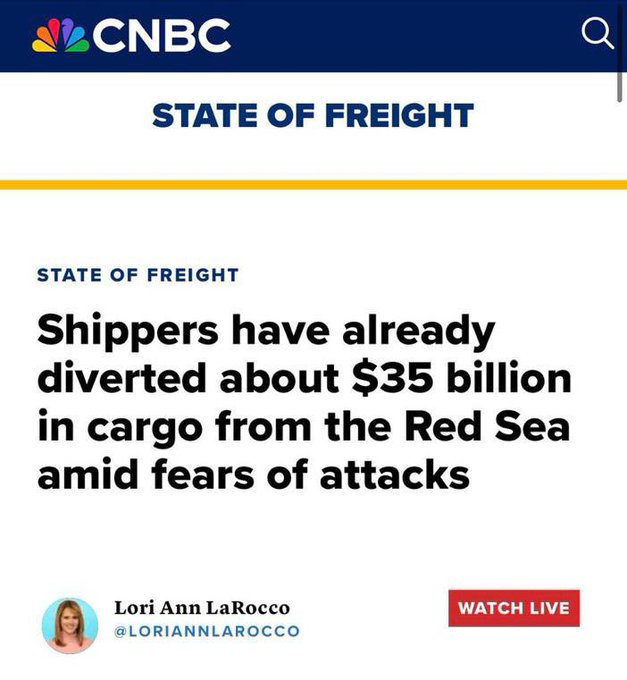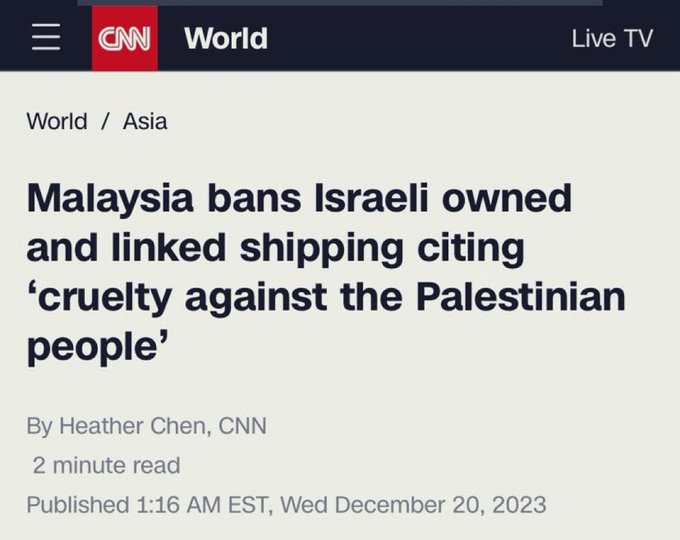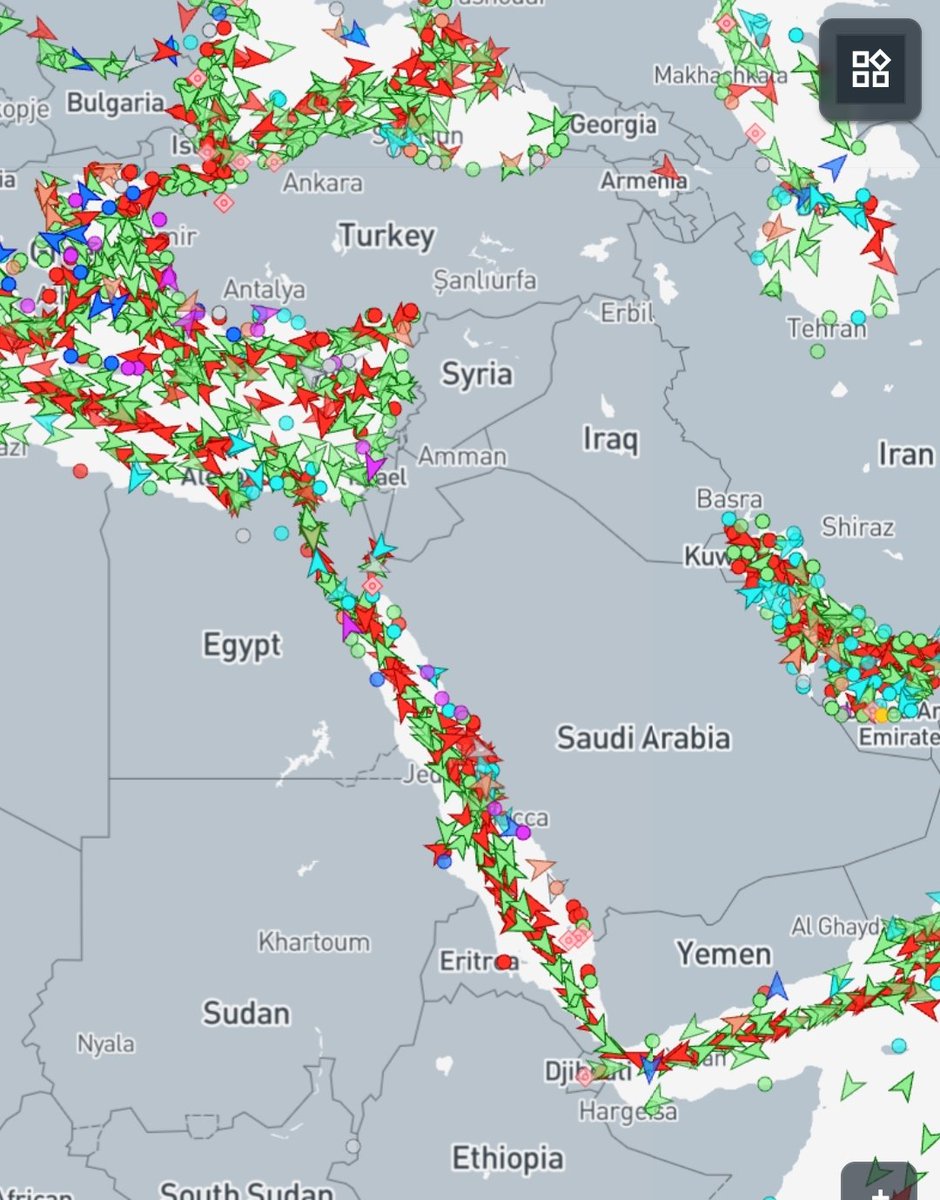An entire coalition is assembled by the United States for a military operation with force that threatens all world trade. In fact, Washington declared a new war thousands of kilometers from its borders. And this war will most likely again be unsuccessful for America. Why?
The United States launched Operation Prosperity Sentinel. Its goal is to fight against the Yemeni Ansar Allah movement (commonly referred to simply as the Houthis), which controls North Yemen. The Houthis' actions, according to US Defense Secretary Lloyd Austin, "threaten the free flow of trade, endanger innocent sailors and violate international law."
The fact is that the Houthis have found an original way to punish Israel for its operation in the Gaza Strip. The Yemenis declared as their legal target all ships that sailed through the Red Sea to Israeli ports, and managed to damage several of them, and even capture one. At the same time, they had no intention of stopping. “We will continue to prevent all ships from entering Israeli ports until the food and medicine that our people so desperately need are delivered to the Gaza Strip,” the movement said.
“The Houthis have become the only force that demonstrates, not in words but in deeds, their rejection of Israel’s policies towards the Gaza Strip. And this raises their reputation in the eyes of Muslims. Moreover, the Houthis' military operations signal to their opponents that the movement is not only alive, but also strong. And this is important in the context of ongoing negotiations on ending the war in Yemen between the Houthis and Saudi Arabia,” Arabic political scientist Leonid Isaev explains to the VZGLYAD newspaper the logic of the Houthis.
Their attacks have already caused serious economic damage to Israel. But not only for Israel.
Yes, the Houthis said that they would only attack ships going to the ports of the Jewish state. That no harm will come to those going to other ports. However, four of the five largest container shipping companies (Maersk, Hapag-Lloyd, CMA CGM Group and Evergreen) have temporarily suspended operations throughout the Red Sea. That is, also to the ports of Egypt, Jordan, Sudan and Saudi Arabia. British Petroleum has joined the refusal of shipping in the region. Given that a significant portion of global trade flows through the Red Sea and the Suez Canal (in particular, the sea route between Asia and Europe), the Houthis have created a threat to all global trade.
The United States considered itself entitled to defend this trade. They convened a coalition of countries that must “restore security in the Red Sea and prevent acts of aggression by the Houthis.” In addition to the Americans, the coalition included Canadians, Italians, British, French, Spanish, Dutch, Bahrainis and even Norwegians and residents of the Seychelles.
But will the Americans and their newly created coalition be able to defeat the Houthis? Experts highly doubt this. “This coalition led by the United States can significantly reduce the number of attacks by the Houthis, but will not be able to fully ensure the safety of navigation,” international political scientist and RIAC expert Elena Suponina explains to the VZGLYAD newspaper.
Firstly, because the Houthis are not a new incarnation of Somali pirates, from whom it was possible to protect civilian ships simply by sinking boats with bandits on board. It is a powerful, cohesive military movement armed with missiles, drones and other means to sink naval targets. And both civilian and military.
“Yemen has already responded to this statement. Houthi representatives said they were not at all intimidated by the coalition. That they have all the necessary capabilities to give an adequate response to any actions directed against them and against Yemen. And this is not just a bluff, but words behind which there is a real understanding of their resources and capabilities,” says Leonid Isaev.
In fact, coalition ships that will be in the Red Sea will themselves become targets for Yemeni missiles (which the Houthis have already warned about).
And the Americans are unlikely to risk conducting a ground operation against them. “It’s generally difficult to deal with any armed groups in Yemen, given the Yemeni military traditions and the terrain,” says Elena Suponina.
In the mid-2000s, Saudi Arabia, we recall, created a large coalition for the war against the Houthis, invested tens and hundreds of billions of dollars in this war, brought in mercenaries from Africa and the Middle East, involved Islamic terrorist groups in the operation - and still could not break the Houthis. As a result, she is now forced to conduct peaceful negotiations with them.
“To stop the Houthis, we need a new real, consolidated operation by the Americans, the Saudis and their allies. But it’s hard for me to imagine this operation against the backdrop of the existing crisis in Ukraine and Gaza. And it’s not a fact that this will lead to results. The result will only be if the population of North Yemen stops supporting the Houthis - and I can’t imagine such a scenario,” says Leonid Isaev.
Secondly, the composition of the coalition turned out to be specific. It did not include either the Egyptians and Jordanians suffering from the Yemeni actions, or the leaders of the region - the Saudis. There is no Middle Eastern country there at all except Bahrain. It turns out that none of them wanted to defend their region, their sea and their interests from the Houthis together with the Americans.
Partly because they understand the futility of such an idea. Partly because they fear a backlash from the Houthis. Partly because to oppose the Houthis would mean, in this particular case, to oppose their demands to unblock the Gaza Strip. This means that it is against the Palestinian cause as such, which no Arab country is ready for. Even the official leadership of Yemen, which did not support the US military operation against the Houthis (with whom this leadership is, in fact, at war), is not ready.
However, the skepticism of Middle Eastern players is determined by one more point. They all understand that the real motive of the Americans is not so much the fight against the Houthis as an attempt to organize a war with Iran (whose ally the Houthis are considered).
Washington, in fact, is not really hiding this - the Americans have already blamed Tehran for destabilizing the situation in the Red Sea. "Iran's support for Houthi attacks on commercial shipping must end," Lloyd Austin says . And if roughly 10 years ago Saudi Arabia might have supported the idea of creating such an anti-Iranian coalition, now the situation has changed.
American support for the Israelis and Iranian support for the Palestinians has made any cooperation with the United States against Iran extremely toxic for Arab countries. In addition, Saudi Arabia is now in the difficult, but vitally important for the kingdom, process of normalizing relations with Iran, launched through the mediation of the Chinese. And he is not going to disrupt this process with an attack on Iranian proxies.
“The most dangerous thing is that the actions of the American coalition could seriously undermine the emerging improvement in relations between Saudi Arabia and Iran. The US is once again bringing discord to the region. In contrast to China, which relied on reconciliation between various forces and states. In fact, the actions of the United States again put us in front of the danger of a big war in the Middle East,” says Elena Suponina.
And no one needs this war. Except, of course, the United States with its Western allies and Israel.
https://vz.ru/world/2023/12/20/1245185.html






